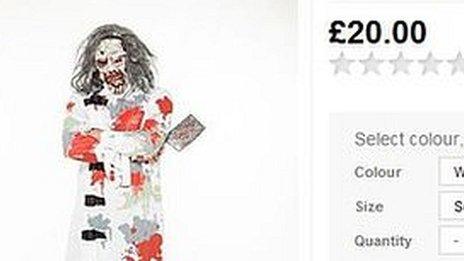The Great Escape asylum game 'demonises mental health'
- Published
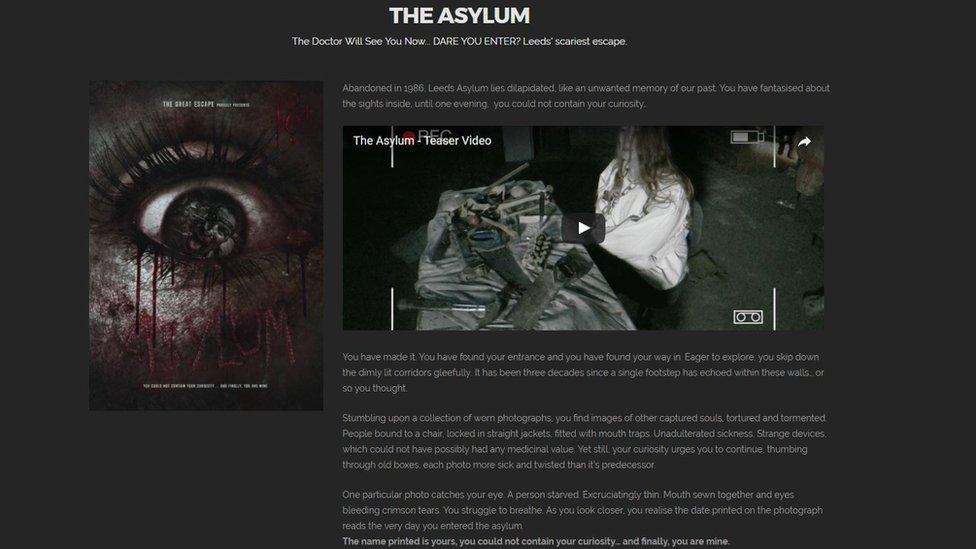
Promotional material for "The Asylum" game references people locked in straight jackets and fitted with mouth traps
An "escape game" set in a fictional asylum has been criticised by health professionals for "demonising mental health".
The game, run by The Great Escape Game Leeds, challenges players to solve a series of clues to find their way out.
Online advertising mentioning people "locked in straight jackets" has been said to stigmatise mental illness.
The company has apologised for any offence caused but says the game does not "mock psychiatric illness".
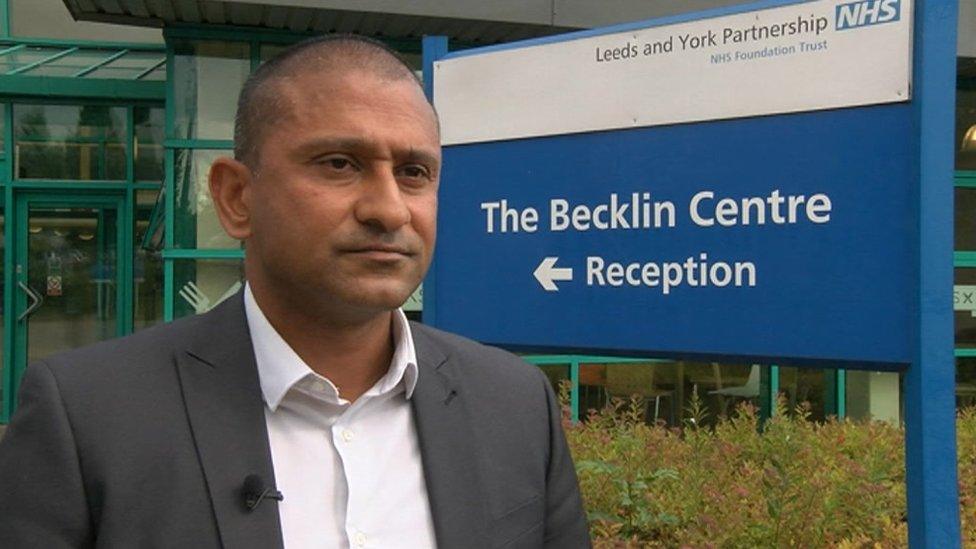
Dr Nuwan Dissanayaka said he was "astonished" by the game
Dr Nuwan Dissanayaka, a consultant psychiatrist with Leeds and York Partnership NHS Foundation Trust, said he believed the premise of the game "flies in the face" of efforts to end the stigmatisation around mental health.
He said: "I'm astonished that in a civilised society in this day and age that we should be demonising mental health, however historical the context, for the sake of entertainment. I think it's wrong."
Claire Woodham, a governor for the trust who has been diagnosed with mental health problems, said: "For this [game] to come out and portray people with mental health as being in straight jackets and tied to chairs, as tormented and dangerous individuals, really worries me.
"There will be people out there now trying to work up the courage to seek help and this could really deter them from doing that."
'Not stigmatised patients'
In a statement issued by the company, external, it said: "The game does not feature torture and psychiatric illness is not a theme of the game.
"We have not stigmatised psychiatric patients as "scary people" or "helpless".
"[However] we now understand how some of the wording from the website could be interpreted negatively and will be working to address this, as well as other issues in the coming weeks."
It said that before launching the game the company had spoken to a focus group of people affected by psychiatric illnesses, but in light of the criticism it would be speaking to mental health charity Mind, and campaign group Time To Change, in order to avoid further offence.
- Published2 February 2017

- Published16 May 2016
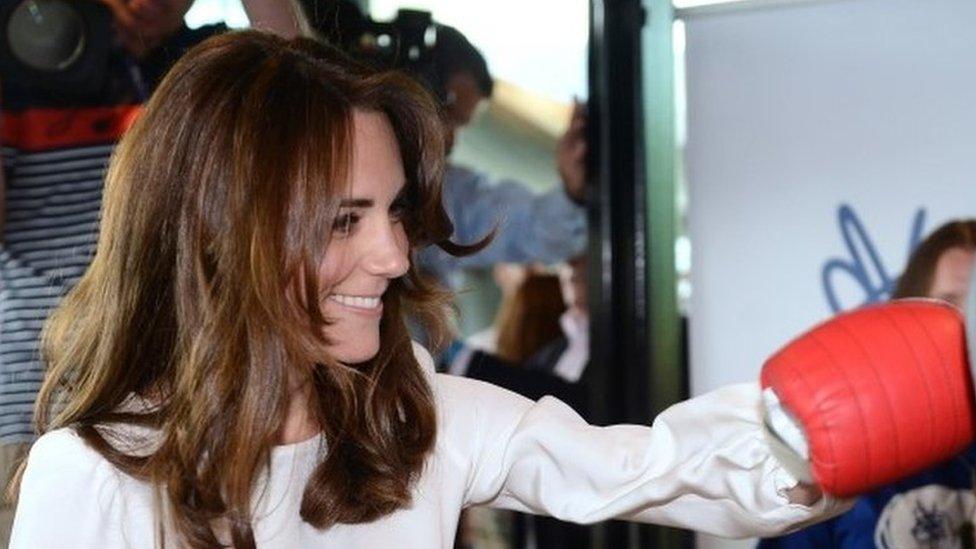
- Published17 December 2015
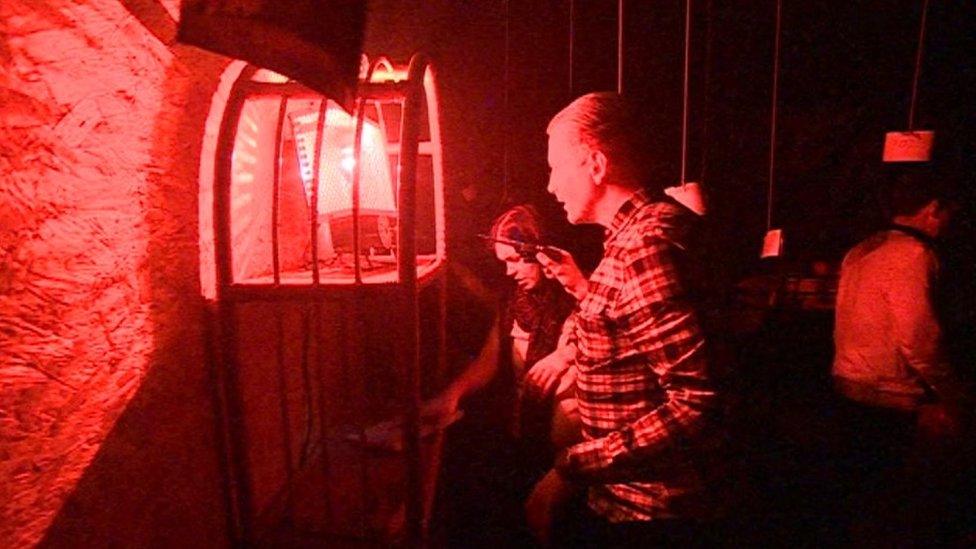
- Published22 October 2013
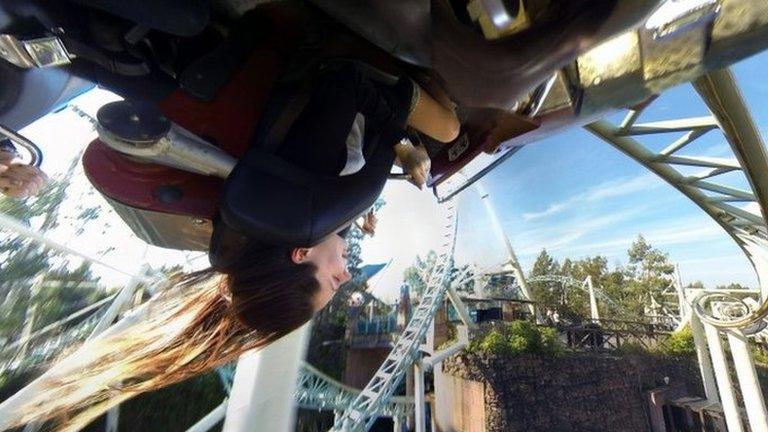
- Published26 September 2013
